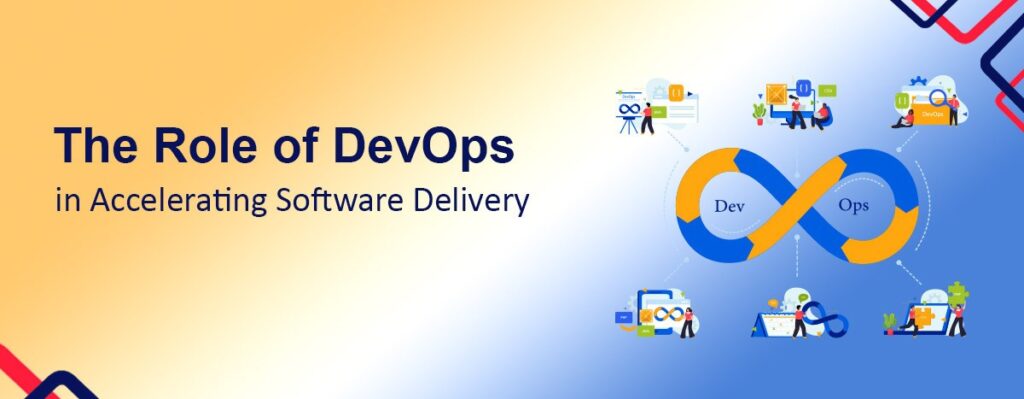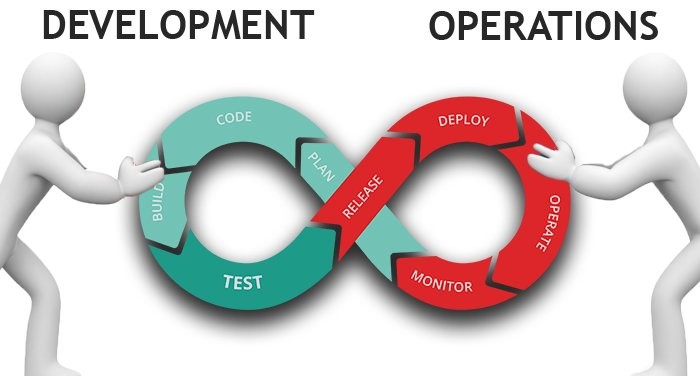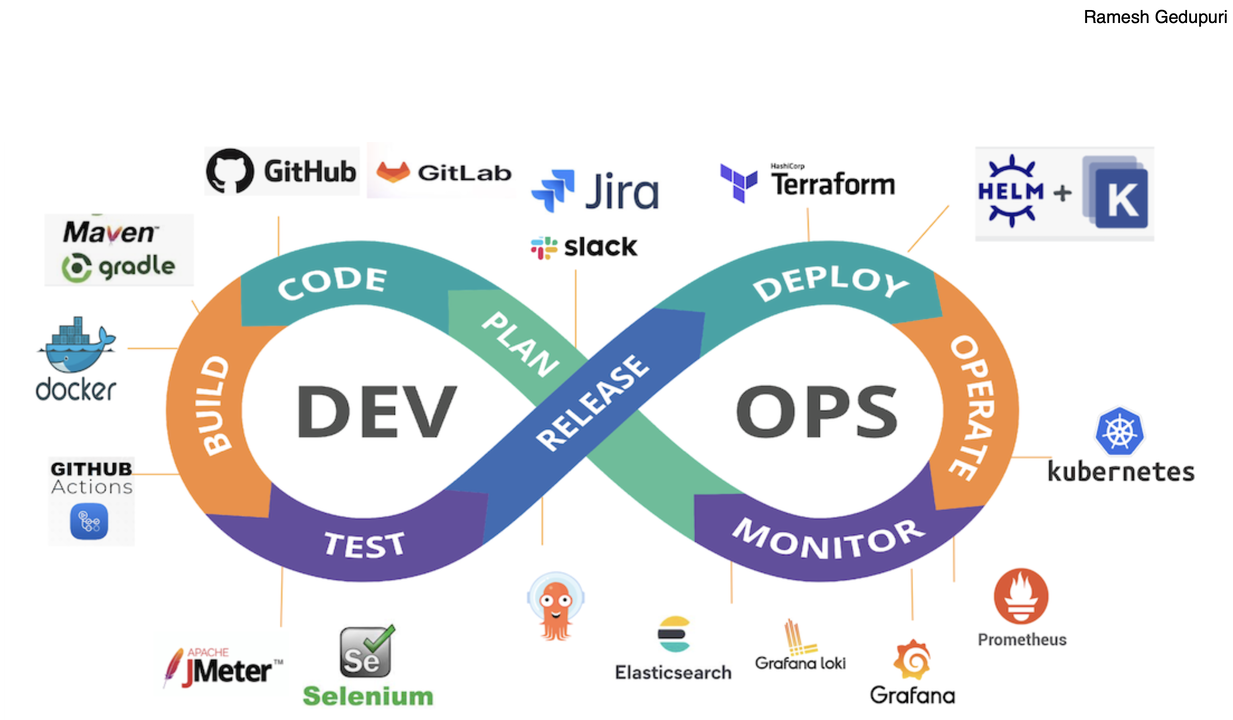In today’s rapidly evolving digital environment, businesses must deliver high-quality software swiftly and effectively to remain competitive. Traditional software development practices often fall short in meeting the growing demands for faster delivery, enhanced reliability, and scalability. This is where DevOps becomes essential. By uniting development and operations teams, DevOps has transformed the software development lifecycle, allowing organizations to expedite software delivery without sacrificing quality.
This article examines the crucial role of DevOps in modern software delivery, highlighting its core principles, advantages, and effective strategies for successful integration. By exploring how DevOps improves collaboration between development and operations teams, the article demonstrates how it streamlines processes and speeds up the delivery cycle. Additionally, it outlines key approaches to implementing DevOps practices within an organization, ensuring a smooth and beneficial transition. Through this detailed analysis, readers will gain a comprehensive understanding of why DevOps is essential in today’s fast-paced software industry.
Understanding DevOps: A Brief Overview
DevOps goes beyond being just a methodology—it’s a cultural transformation that connects software development (Dev) with IT operations (Ops). It focuses on collaboration, automation, continuous integration and delivery (CI/CD), and feedback loops to optimize the development process and improve software delivery.
Key Principles of DevOps
- Collaboration and Communication: DevOps fosters close collaboration between developers, operations teams, and other stakeholders to reduce silos and enhance efficiency.
- Automation: Automating repetitive tasks, such as testing, deployment, and monitoring, reduces human error and accelerates delivery.
- Continuous Integration and Continuous Delivery (CI/CD): These practices ensure that code changes are frequently integrated, tested, and deployed to production environments.
- Monitoring and Feedback: Real-time monitoring and feedback loops provide insights into application performance, enabling teams to address issues proactively.
Why DevOps is Essential for Accelerating Software Delivery
1. Faster Time-to-Market
In an era where speed is essential, DevOps empowers organizations to decrease the time required to develop, test, and deploy software. By implementing CI/CD pipelines and automating workflows, teams can deliver features and updates more quickly, effectively meeting market demands.
For instance, companies such as Amazon are able to implement code changes thousands of times on a daily basis. This efficiency is made possible through the adoption and implementation of DevOps practices, which streamline and enhance their software development processes.
2. Improved Collaboration and Efficiency
DevOps fosters a culture of collaboration between teams that were traditionally isolated. This unified approach removes bottlenecks, reduces misunderstandings, and ensures everyone works towards the same objectives. Efficient communication channels promote innovation and agility.
3. Enhanced Quality and Reliability
By utilizing automated testing and monitoring, DevOps guarantees that each code change undergoes comprehensive evaluation before being deployed to production. Continuous feedback loops enable teams to detect and resolve issues early in the development process, thereby minimizing bugs and enhancing software reliability.
4. Scalability and Flexibility
DevOps practices empower organizations to scale their infrastructure and applications effortlessly. Tools such as Kubernetes and Docker facilitate efficient resource management and deployment in complex environments, ensuring that applications can manage increased workloads without sacrificing performance.
5. Cost-Effectiveness
By automating tasks and enhancing resource utilization, DevOps lowers operational costs. Teams can concentrate on innovation instead of manual, time-consuming processes, maximizing the return on investment (ROI).

Core Components of a DevOps Strategy
- CI/CD Pipelines
CI/CD pipelines are the foundation of DevOps. They automate the integration, testing, and deployment of code changes, enabling faster and more reliable releases. Popular CI/CD tools include Jenkins, GitLab CI, and CircleCI. - Infrastructure as Code (IaC)
Infrastructure as Code (IaC) involves managing and provisioning infrastructure through code instead of manual processes. Tools such as Terraform and Ansible ensure consistency, scalability, and quicker deployment of infrastructure. - Monitoring and Logging
Real-time monitoring tools like Prometheus, Grafana, and Splunk play a crucial role in helping teams effectively track and analyze application performance. They enable the detection of anomalies and potential issues early on, allowing for timely interventions and resolutions before these problems can impact the end users. These tools provide invaluable insights and data, fostering a proactive approach to maintaining optimal application functionality and user satisfaction. - Containerization and Orchestration
Technologies such as Docker and Kubernetes enable containerization, simplifying the deployment and scaling of applications across various environments. - Security Integration (DevSecOps)
Integrating security into the DevOps pipeline ensures applications remain secure without hindering delivery. Automated security testing tools such as Snyk and SonarQube help detect vulnerabilities early in the development cycle.
Case Studies: DevOps Success Stories
1. Netflix
Netflix’s capability to stream smoothly to millions of users worldwide demonstrates its strong DevOps practices. By utilizing automation, CI/CD pipelines, and real-time monitoring, Netflix frequently deploys updates without disrupting the user experience.
2. Etsy
Etsy embraced DevOps to address issues with slow deployments and system outages. By implementing CI/CD pipelines and nurturing a culture of collaboration, Etsy significantly reduced deployment times and enhanced system reliability.
Challenges in Adopting DevOps
While DevOps offers numerous benefits, its adoption is not without challenges. Organizations may face hurdles such as:
- Cultural Resistance: Transitioning to a DevOps culture requires significant changes in mindset and processes, which can encounter resistance from teams.
- Tool Overload: Choosing the right tools from an overwhelming array of options can be daunting.
- Skill Gaps: Successful DevOps implementation requires skilled professionals familiar with tools and practices.
- Security Concerns: Integrating security into the pipeline (DevSecOps) requires additional effort and resources.
Organizations can overcome these challenges through proper planning, training, and incremental adoption of DevOps practices.

The Future of DevOps
As technology evolves rapidly, DevOps is set to become even more critical in software delivery. Several key trends are shaping the future landscape of DevOps, including:
- AI and Machine Learning: AI-driven tools will optimize workflows, predict issues, and enhance decision-making.
- GitOps: Managing infrastructure and application deployment through Git repositories will gain popularity.
- Serverless Computing: DevOps teams will increasingly adopt serverless architectures for cost-effective and scalable solutions.
- Advanced Security Automation: DevSecOps practices will become more sophisticated, integrating AI-driven security measures.

Conclusion
DevOps has revolutionized the software development landscape by facilitating faster, more reliable, and cost-effective software delivery. Its focus on collaboration, automation, and continuous improvement aligns seamlessly with the needs of modern businesses. As organizations undertake digital transformation, DevOps will continue to be a crucial driver of innovation and growth.
To remain competitive in the software market, businesses must embrace DevOps not only as a methodology but as a cultural transformation that influences their entire organization. This approach enables them to speed up software delivery, enhance quality, and attain sustainable success in the constantly evolving digital era.
If you want to learn more about how DevOps can accelerate your software delivery, check out our detailed guide on DevOps and Software Delivery or Contact us.


